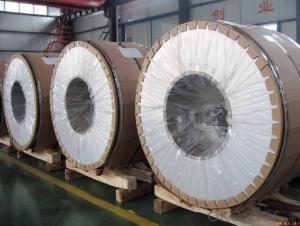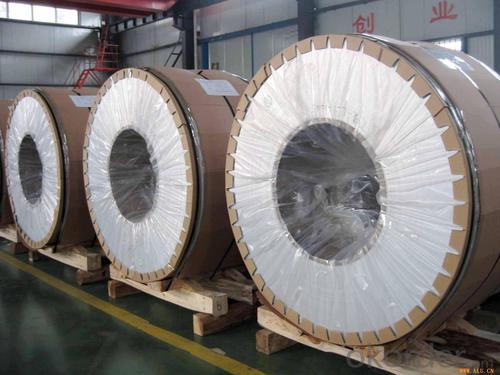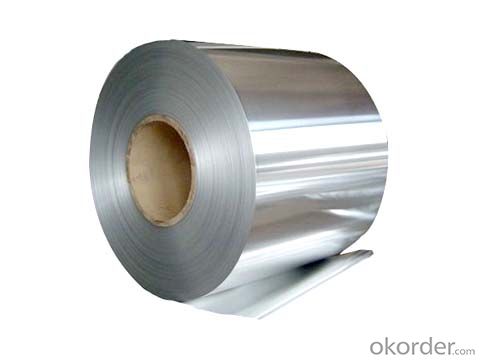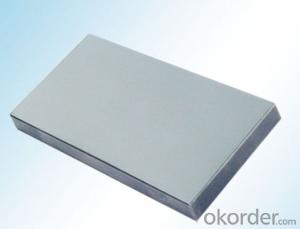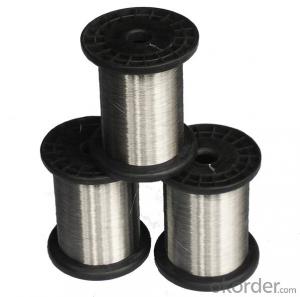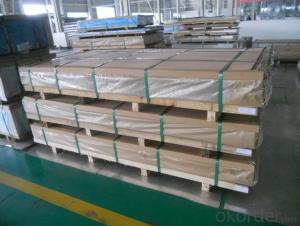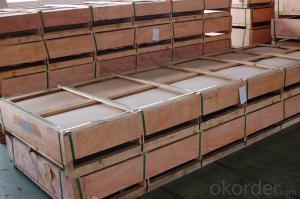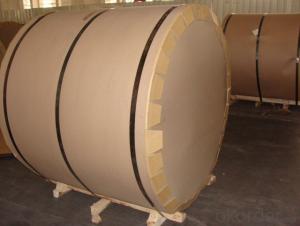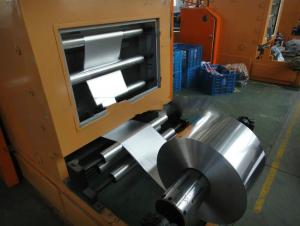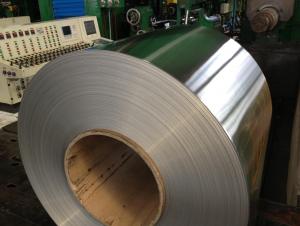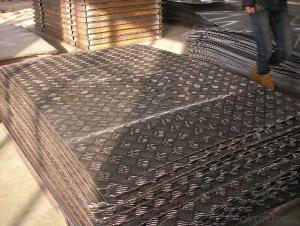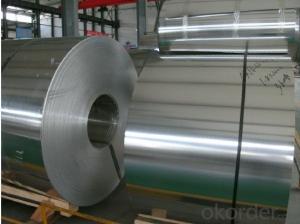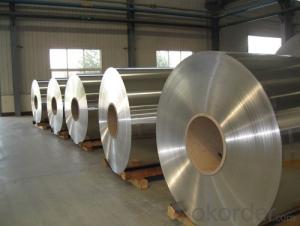8x10 Sheets Mill Finished Aluminum Coils for Secondary Rolling
- Loading Port:
- Shanghai
- Payment Terms:
- TT OR LC
- Min Order Qty:
- 5 m.t.
- Supply Capability:
- 500 m.t./month
OKorder Service Pledge
OKorder Financial Service
You Might Also Like
Specification
1.Structure of Mill Finished Aluminium Coils for Secondary Rolling
Mill Finished Aluminium Coils for Secondary Rolling is one semi-finished aluminium material. This strip can be rolled down to aluminium coil,sheet,circle ect. The alloy AA1050 is widly used in building, industry ect. Its weight is much lower than steel. So many customers choosed aluminium material instead of steel.
2. Main features of the product
a.Competitive price---We have our own mills and can produce mill finished aluminium coils, so we can control the production cost better.
b.Professional after-sale service---We have more than 15 years exportation experience and you need not worry about the exporation problems.
c.Fast delivery time---We can control the delivery time within 35 days.
3. Image
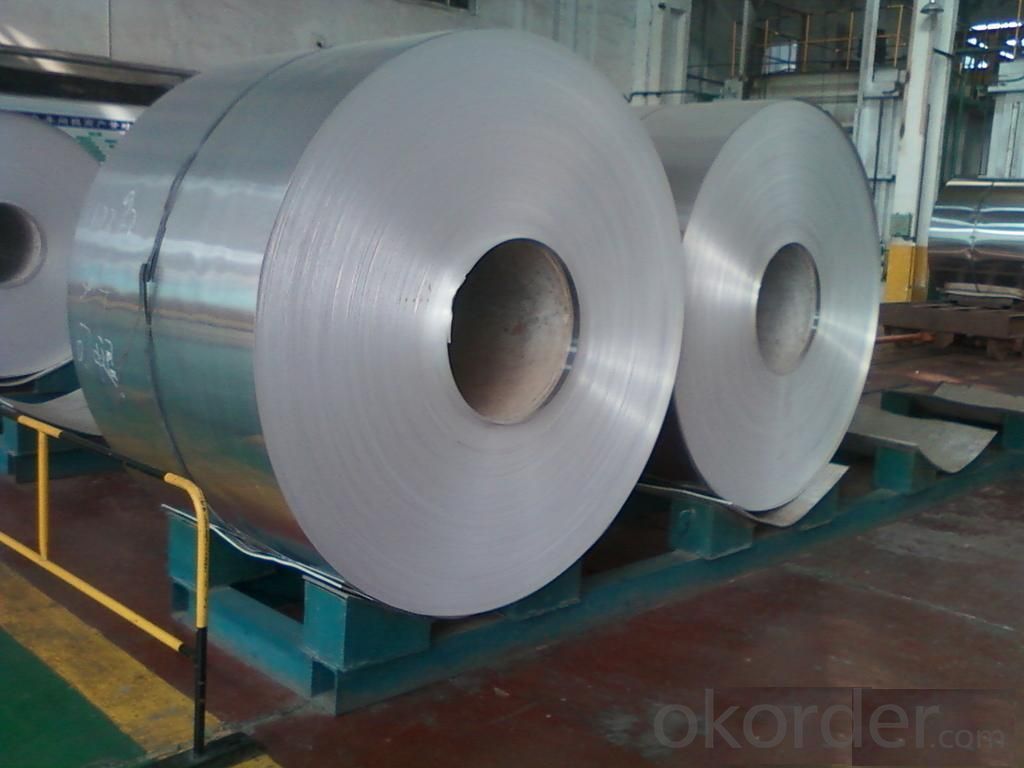
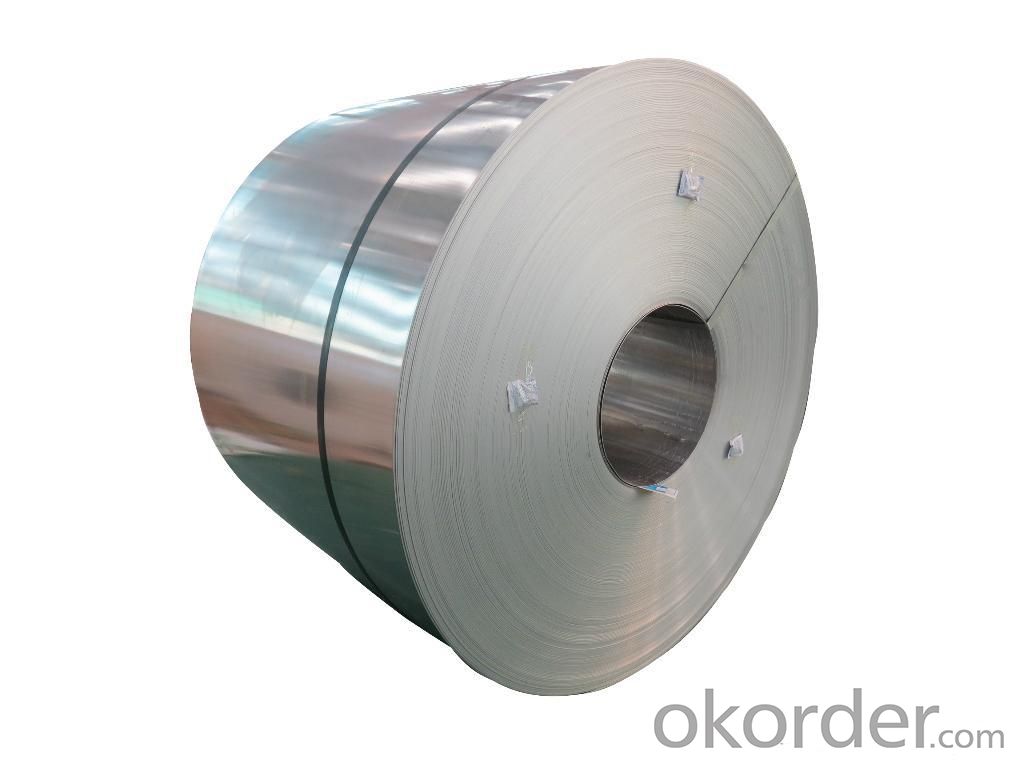
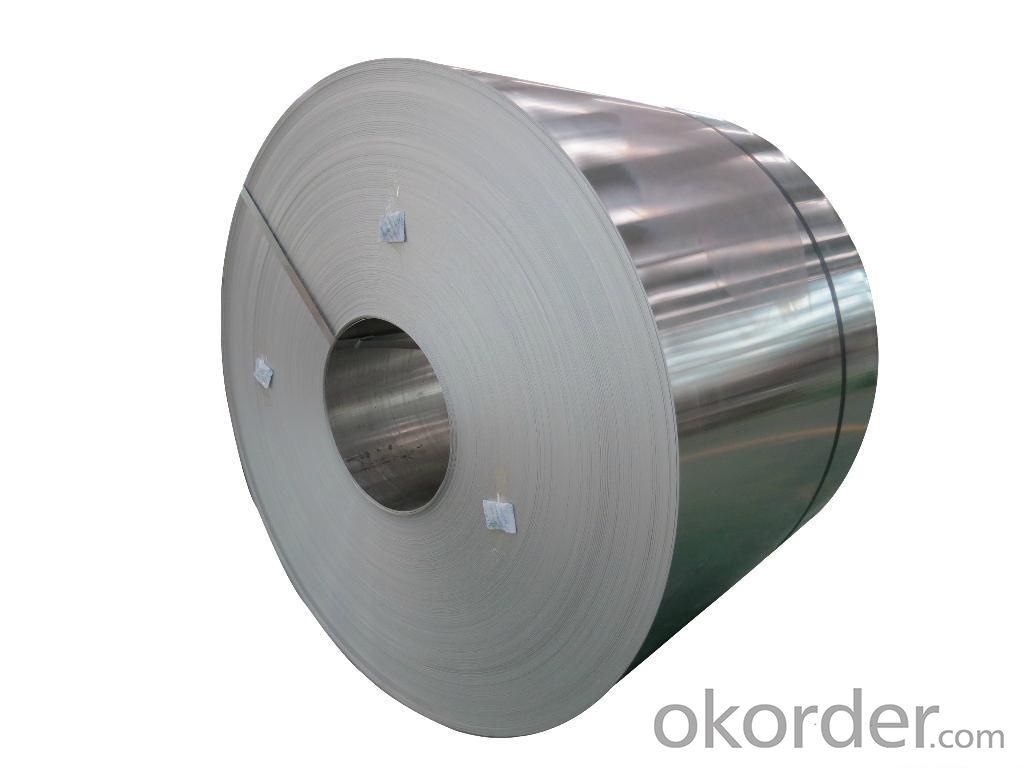
4. Product Specification
| ALLOY | TEMPER | THICKNESS | WIDTH | WEIGHT |
| AA1050 | H14 | 3MM-8MM | 1000MM-1500MM | 2 TONS |
5.FAQ:
What is the quality standard?
---Usually our standard is GB3880-2006
What is the largest width?
---It is 2300mm
What is the MOQ?
---Usually we can accept 80 tons.
- Q: ... initial temperature of the water or the initial temperature of the aluminum? Why?
- The correct equation is: dQ = m*c*dT As dQ (substitute of thermal potential) and mass are the comparable, the equation may well be rewritten as: c*dT=consistent So a cloth with a decrease specific warmth skill could have a much better improve in temperature. The question has already suggested this yet now all of us be attentive to they are inversely proportional. to that end: c of aluminium/c of copper = dT of aluminium / dT of copper 0.22/0.092 = proportionality consistent = 2.39 So copper would be 2.4 circumstances warmer than aluminium (or aluminium would be 0.40 two circumstances warmer than copper).
- Q: How does the thickness tolerance of aluminum sheet affect its usability?
- The usability of aluminum sheet is greatly influenced by its thickness tolerance, which refers to the acceptable deviation from the specified thickness. This tolerance is typically expressed as a range or a plus/minus value. Having a tighter thickness tolerance guarantees that the aluminum sheet consistently meets the desired specifications. This is crucial in industries such as aerospace, automotive, and construction, where precise dimensions are necessary. Even a slight deviation in thickness can have a negative impact on the performance and functionality of the product. For example, in aircraft manufacturing, the thickness tolerance of aluminum sheets used for structural components is of utmost importance. A thin sheet could compromise the structural integrity, while a thicker sheet could add excess weight, affecting fuel efficiency. Similarly, in the automotive industry, precise thickness tolerance is vital to ensure compatibility and fitment of various components. On the other hand, a looser thickness tolerance may be acceptable in applications where precise dimensions are not as critical. For instance, in general fabrication, signage, or decorative purposes, a wider thickness tolerance may not significantly affect the usability or appearance of the aluminum sheet. Furthermore, manufacturing aluminum sheets with tighter thickness tolerances generally incurs higher costs due to increased precision and quality control measures. Therefore, the desired level of tolerance should be carefully balanced with the intended use and cost considerations. To conclude, the usability of aluminum sheet is directly influenced by its thickness tolerance, particularly in industries that require precise dimensions. Selecting the appropriate tolerance level is essential to ensure that the sheet meets the necessary specifications and maintains the desired performance and functionality of the final product.
- Q: why can't aluminum sheet burn after polishing?
- because aluminum will rapidly formulate dense oxide film once being exposed in air, oxide film will generate after polishing, it can't burn.
- Q: I'm working on a costume that's entirely made of cardboard (it's a giant robot), and I was wondering What's the best way to1 turn Soda cans into aluminum sheeting2: attach the aluminum everywhere on the robot3. Attach the aluminum to the aluminumThank you in advance.
- Why not heavy duty aluminum foil glued to cardboard? that would look a lot better than patched up pieces of aluminum from tin cans. How would you connect the chunks of aluminum together? and remove the label. Note that soda cans have a coating of plastic on the inside. I don't see any easy way to attach the bits of aluminum from tin cans together, and remove the painted on labels. It would look just like that, pieces of cans glued together. In stead of cardboard you could use foam board which is lighter and more rigid.
- Q: Can aluminum sheets be easily shaped or bent?
- Yes, aluminum sheets can be easily shaped or bent due to their malleability and low density.
- Q: im wondering what happens if you MIG weld aluminum with the correct wire but without using a shielding gas? Would it just be extremely messy or does there HAVE to be an inert gas flowing for it to bond?thanks
- Mig Welding Aluminum Without Gas
- Q: i want to build a smelter to recycle aluminum auto parts
- Tita, while providing an elegant answer, forgot to mention that it is mostly cut and paste from Wikipedia. I'll provide the link for her below. She also forgot to copy and paste the part about aluminum oxidizing easily when it is heated and melted. If you are trying to smelter aluminum, you will need to have a compressed or dense mass of aluminum and a smelter that is airtight. Otherwise, it will just oxidize right back into aluminum oxide, which is a white powder. You've probably seen this when you throw a beer can in the campfire? good luck and have fun in your endeavors. And always remember to cite your source!
- Q: What is the flexural modulus of aluminum sheets?
- The flexural modulus of aluminum sheets refers to the measure of stiffness or rigidity of the material when subjected to bending. It quantifies how much the material will deform or bend under a given load. The flexural modulus of aluminum sheets typically ranges between 70 and 79 GPa (Gigapascals).
- Q: How do you prevent oil or grease stains on aluminum sheets?
- To prevent oil or grease stains on aluminum sheets, there are a few measures you can take: 1. Clean the aluminum sheets regularly: Regularly cleaning the aluminum sheets will help remove any existing oil or grease stains and prevent them from accumulating. Use a mild detergent or a mixture of water and vinegar to clean the sheets. Avoid using abrasive cleaners or scrubbing pads as they may damage the surface. 2. Apply a protective coating: Applying a protective coating can act as a barrier between the aluminum surface and oil or grease. There are various coating options available, such as clear lacquer or anodizing. These coatings create a smooth and non-porous surface, making it harder for oil or grease to penetrate and stain the aluminum sheets. 3. Use a barrier material: If you frequently work with oil or grease near aluminum sheets, consider using a barrier material to prevent direct contact. This could include using a silicone mat or placing a layer of parchment paper or aluminum foil between the aluminum sheet and the oil or grease source. 4. Store aluminum sheets properly: Proper storage is essential to prevent oil or grease stains on aluminum sheets. Make sure to store them in a clean and dry environment, away from any potential sources of contamination. Keep the sheets covered or wrapped in a protective material to prevent dust, dirt, or oil from settling on the surface. 5. Handle aluminum sheets with clean hands: When handling aluminum sheets, ensure your hands are clean and free of oil or grease. Even small amounts of oil or grease on your hands can transfer onto the sheets and cause stains. If necessary, wear clean gloves or use clean tools when working with aluminum sheets to minimize the risk of stains. By implementing these preventive measures, you can significantly reduce the chances of oil or grease stains on your aluminum sheets, keeping them clean and in good condition.
- Q: This question asks for a list of various types of fasteners that can be used to secure aluminum windows to their frames.
- <p>There are several types of fasteners used for attaching aluminum windows to frames, including: 1. Screws: Commonly used for their secure hold and ease of installation. 2. Nails: Quick to use but may not provide the same level of security as screws. 3. Adhesives: Can be used for a more permanent bond, especially in certain applications. 4. Clips and brackets: Used for a more visible, decorative attachment. 5. Rivets: Provide a strong, permanent connection but are not easily removable. 6. Dowels and pins: Used for a more traditional or decorative join. 7. Structural glazing systems: Employ silicone or other sealants to bond the window to the frame. Each type of fastener has its own advantages and is chosen based on the specific requirements of the project, such as load-bearing needs, aesthetic considerations, and the desired level of permanence.</p>
Send your message to us
8x10 Sheets Mill Finished Aluminum Coils for Secondary Rolling
- Loading Port:
- Shanghai
- Payment Terms:
- TT OR LC
- Min Order Qty:
- 5 m.t.
- Supply Capability:
- 500 m.t./month
OKorder Service Pledge
OKorder Financial Service
Similar products
Hot products
Hot Searches
Related keywords
